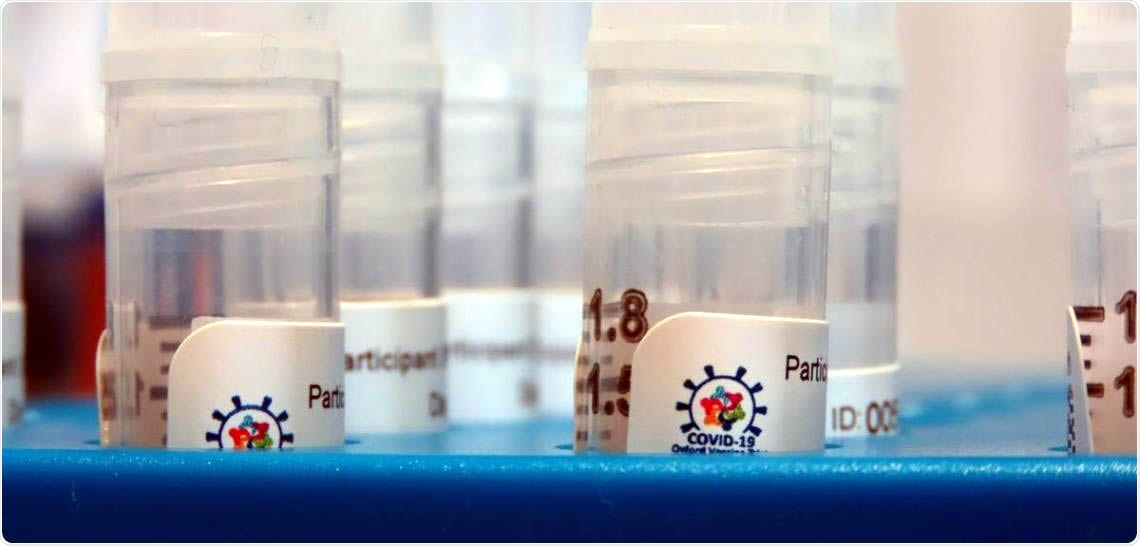More than a hundred candidate vaccine trials against the severe acute respiratory syndrome coronavirus 2 (SARS-CoV-2), the virus that causes the coronavirus disease (COVID-19), are underway. About 35 are now undergoing clinical evaluation, and of these, nine are in the final phase of human trials, including the vaccine developed by Oxford University and the biopharmaceutical firm, AstraZeneca.
Earlier this month, AstraZeneca announced that it had paused its phase 3 clinical trial due to a volunteer falling ill. Now, the firm said it resumes the international clinical trial of the proposed coronavirus disease candidate.

Resuming trials
AstraZeneca announced that it had resumed the trials for its coronavirus vaccine, AZD1222, following confirmation by the Medicines Health Regulatory Authority (MHRA) that it was safe to do so.
On September 6, the standard review process triggered a voluntary pause to immunization with AZD1222 across all global trials. The team made this move to review safety data by independent committees and even international regulators, following a man falling ill while enrolled in phase 3 clinical trial.
The regulators, along with the U.K. committee has concluded that it is safe to resume human trials in the U.K. However, the pharma company and its partner, Oxford University, said they could not disclose further medical information.
“AstraZeneca is committed to the safety of trial participants and the highest standards of conduct in clinical trials. The company will continue to work with health authorities across the world and be guided as to when other clinical trials can resume to provide the vaccine broadly, equitably, and at no profit during this pandemic,” AstraZeneca said in a news release.
Meanwhile, Oxford University said in a statement that about 18,000 people across the globe have already received the candidate vaccine. Before the pause of the trial, the company has been testing the vaccine in the United States, Latin America, the United Kingdom, Asia, Africa, and Europe.
In a large trial like the phase 3 trial of the AZD1222 or Oxford vaccine, it is expected that some participants will feel unwell, and every case should be evaluated carefully to ascertain appropriate assessment of safety, the Oxford University scientists said.
The AZD1222 vaccine
AZD1222 is one of the potential vaccines at phase 3 clinical trial level. Phase 3 trials are the last phase of human trials to make sure the vaccine is safe and effective to use. These trials assess the side effects of each drug and which drugs work better, wherein more than 100 people are enrolled.
The vaccine was co-invented by the University of Oxford and its spin-out company, Vaccitech. The vaccine utilizes a replication-deficient chimpanzee viral vector based on a weakened version of a common cold virus, called adenovirus. The vaccine contains the genetic material of the SARS-CoV-2 virus spike protein, and it aims to induce an immune response against the virus.
In July, the preliminary results of the AZD1222 trial show promise in inducing a strong and robust immune response against SARS-CoV-2.
The results of phase 1 and 2 clinical trials published in the journal The Lancet show that there are no early safety concerns, and the vaccine induces a robust immune response. The vaccine triggered a T cell response within 14 days of vaccination. These cells are antibodies that can detect and attack cells infected with SARS-CoV-2.
Oxford's scientists explain the Phase I/II results for the COVID-19 vaccine
There is a dire need for a safe and effective coronavirus vaccine as the global case toll has topped 29.15 million people. More than 925,000 individuals have died from COVID-19.
The United States reports the highest number of cases, with more than 6.55 million cases, followed by India, with more than 4.84 million cases. The other countries with a high number of cases include Brazil, with more than 4.33 million cases, Russia, with more than 1 million cases, and Peru, with more than 729,000 cases.
Sources:
Journal reference: